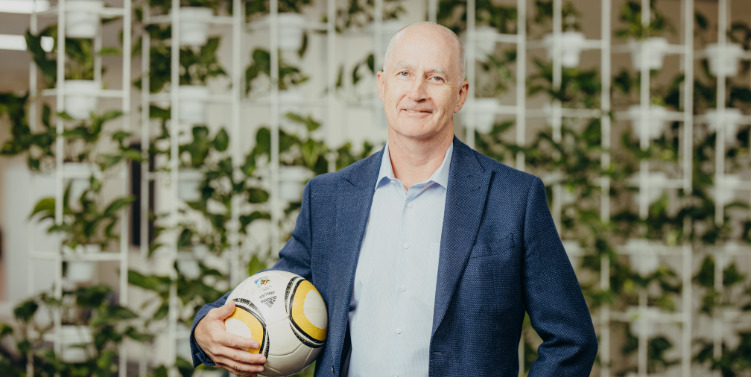Staggering figures show Australia’s up and coming elite athletes are ‘running on empty’

A recent survey carried out by the Australian Sports Foundation (ASF) painted a worrying picture of how Australian athletes are faring just nine years out from the Brisbane 2032 Olympic and Paralympic Games. In this opinion piece, ASF CEO Patrick Walker writes about the opportunity for donors to support young sportspeople in a similar way to the traditional funder support for young people pursing artistic careers.
The survey aimed to capture the views of athletes from Olympic, Paralympic and Commonwealth Games sports (excluding the major professional codes), and responses were received from more than 600 athletes from a wide range of these sports.
The results, collated in a report called Running On Empty, are alarming, revealing that our green and gold athletes are facing acute financial hardship and worsening mental health:
- Almost half (46%) of elite athletes over the age of 18 are surviving on an income of less than $23,000 a year, meaning many are reliant on families to survive, and those from lower-income families are often denied the opportunity to pursue their athletic dreams.
- Rising costs have worsened athletes’ financial situation, with increasing travel and accommodation costs, in particular, placing a heavy strain on athletes and their families.
- These pressures have impacted mental health, with 28% of athletes – and 36% of female athletes – reporting worsening mental health.
These issues combined have created a situation where a staggering 2 in 3 athletes aged 18-34 are considering leaving their sport. Such a significant exodus would leave a gaping hole in our athlete pipeline as we head towards the Brisbane Olympic and Paralympic Games in 2032.
Why does this matter?
We are in an era of economic and geopolitical instability, where the economy is under pressure and our country is facing multiple challenges – including, to take two examples, the housing affordability crisis and climate change. But sport and sports participation play a unique role in our communities and underpinning our collective well-being.
Sports participation contributes to improved physical health and has valuable mental health benefits. Even more importantly, community sport is hugely important in binding communities together in an age when isolation and loneliness is a growing problem. This was clearly demonstrated during the recent FIFA Women’s World Cup, when the Matildas brought the nation together with their inspirational performances. Not only did they inspire the nation to come together as supporters, they inspired our boys and girls to lace up their boots – Football New South Wales reported a 170% increase in junior registrations immediately following the World Cup, for example, and this trend was seen in other states and territories.
Brisbane 2032 provides a similar opportunity for the nation to coalesce around a global event held on home soil, and for young girls and boys to be inspired to get out and get active on a track, field or in a pool. But the Games won’t have this impact without our green and gold athletes being able to give their best and fulfil their potential.
As is often stated, sport at the highest level is “about the one percenters”– meaning that at the highest level marginal improvements make the difference between winning and losing, a podium place or an also-ran. Our survey clearly shows that athletes are not being provided with the support they need to fulfil their potential and to compete on a level playing field with athletes from better-resourced nations.
An opportunity for philanthropic support
There is a long and proud tradition in the arts sector for philanthropy to invest in the future of talented young artists, particularly those whose families may not have the means to support their journey. This philanthropic support enables those artists to fulfil their potential, enriching our nation and our communities and in turn, inspiring the next generation of artists.
There is a similar need in sport, and a similar opportunity for those who care about the role of sport in our national psyche, and who care about providing a fair go for talented athletes who are struggling to make ends meet. The Australian Sports Foundation enables tax deductible donations to be channelled direct to athletes in need, and can facilitate the kind of patronage of young talent seen in the cultural arena for so long.
Our survey shows that a small amount of additional funding can go a long way and could make the difference between an athlete being able to pull on the green and gold and represent our nation in Brisbane – or being lost to their sport.